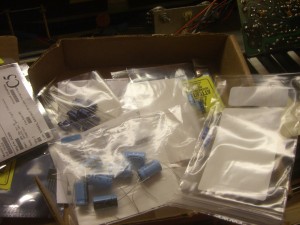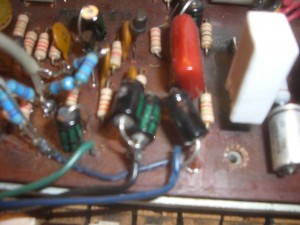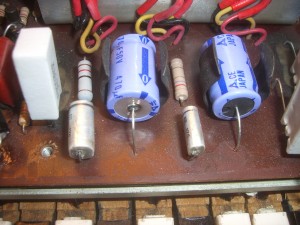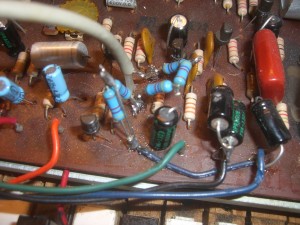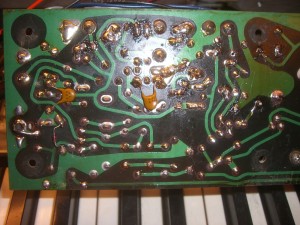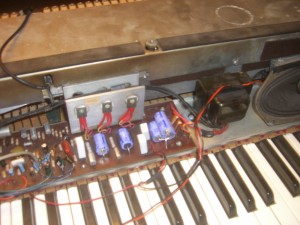“Hmm, I should really get a sound sample for the before and after on my piano. I’m so confident I can get this thing to work that I want some evidence how broken it was prior to my genius fixing of this machine.”
POP. ZAP. HUMMMMMMMMMMMMMMMMMMMMMMM.
“EEP,” thinks Chris.
HMMMMMMMMMMMMMMMMMMMMMMMMMMMM….
So it seems that I may have broken the amplifier on my Wurlitzer 200A. This after I took my sweet ol’ time getting all the replacement parts in from Mouser. After they finally arrived, I scheduled a time to work on the piano on the weekend to try and fit into my relatively busy schedule.
First inspection of the board shows that this piano has definitely had work done on it before. There are multiple places where the solder joints have been over done with solder (too much globbed up in one place). The resistors and capacitors also do not appear to be the originals, though they still appear to be pretty old and could be the originals.
So what do I think happened? In my onomatopoeic description at the beginning of this article, you may have guessed that there was a short to ground (the “ZAP”). This happened because I was dumb enough to try turning on the piano when it was not bolted to the chassis. The circuit board likely shorted from one of the high potential points to the chassis, which is grounded. In the process, high amounts of current either caused a part to fail catastrophically through material failure (a PN junction having too many carriers “break through”) or thermally (an electrolytic capacitor exploding due to high temperature).
I have a very primitive multimeter intended for use on power lines and such, so it could only tell me the there is 2 volts DC at the speaker output. This is definitely not healthy for the speaker nor the system and leads me to believe the output coupling capacitor may have broken. I will update more once I borrow my friend’s advanced multimeter.
